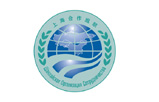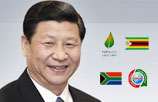Yearender: Abe's revisionism summons old ghosts to haunt Japan's future
(Xinhua) Updated: 2015-12-21 10:46Facts are facts, in fact
In a highly-anticipated statement to mark the 70th anniversary of the end of WWII, Abe opted to highlight pre-war events that led to Japan going down the "wrong path" of war and referencing "incidents" rather than outright aggression as occurring that were "regrettable" for Japan.
But he ultimately failed to deliver the resounding apology, in line with his predecessors, that the world was waiting for.
Before and after Abe's controversial war statement, the year has seen countless attempts by Abe and his sidekicks to sidestep, whitewash, deny and rewrite the factual events that were perpetrated by Japan during the war.
This has only succeeded in further driving a wedge between Japan and its neighbors on issues pertaining to history and territory, although diplomatic ties may have shown signs of embryonic progress of late.
"Abe's war statement was based on the consensus reached by his 'expert' panel of historians and scholars picked so that he could articulate how Japan wants to be viewed by the world in the future, based on its past," said political commentator and Shizuoka-based author Philip McNeil.
"This is the very essence of historical revisionism that makes Abe and his administration so dangerous and misguided," he said.
Abe's speech, McNeil said, concluded with his belief that it was "correct to revise history" to make sure "all the voices haven't been missed."
"But while debate and deliberation over certain historical matters are essential, particularly those that are not well documented or remain equivocal, in terms of Japan's aggressive actions during WWII, this is unnecessary, as the facts are objective and incontestable," he said.
The Japanese government's approval of new social studies textbooks for use in junior high schools containing hugely biased, if not erroneous geographical and historical content, was also a similar display of flagrant revisionism, targeting the "most susceptible minds" and attempting to shape the "future consciousness of a nation."
Along with the politicization of the books' content, the fact that some of the former content has been rewritten to perfectly reflect the Abe administration's revisionist ideology, by artfully lessening the severity of certain acts of atrocity through semantics and verbal camouflage, has not gone unnoticed.
It mirrors the way the Japanese government has been subtly dishing out its misinformation to the public in general, by assuaging Imperial Japan's culpability for the "comfort women" travesty, for example, by questioning lawful survivors' testimony, refuting the number of victims involved and, in some cases involving conservative politicians, suggesting the victims were complicit while others outright deny the savagery ever occurred.
The same could be said for other mass-acts of Japan's wartime barbarity.
Education experts like Hidenori Fujita largely concur that historical and geographical discourse and education here is rapidly going awry.
The Kyoei University professor said that the new text books lack balance and fail to represent the feelings of unjustness from countries like China and South Korea, and are lacking in detail about the specific claims from non-Japanese parties regarding issues of territory and history.
"We are half-satisfied. By mobilizing all means, we must strengthen Japan's information strategy so that in a real sense, we can have others 'properly' understand what is good about Japan," said Yoshiaki Harada, a lawmaker with Abe's ruling Liberal Democratic Party, regarding the government's efforts to push their revised "honorable image" overseas.
Kan Kimura, an expert of Japan-South Korea relations at Kobe University, said that due to concern that Japan is conceding ground in an information war with some of its neighbors, it's attempting to catch up by spreading its version of history as fast and as far overseas as it can.
Kimura's notions have been backed by other experts on the matter.
- Abe's official website latest to come under possible Anonymous cyber attack
- Abe says no simultaneous parliamentary elections next summer, eyes electoral reform
- Chinese FM confirms Li, Abe's 'brief' talk in Malaysia
- China slams Shinzo Abe's 'groundless accusations'
- Park-Abe summit seen as chance to look to future






